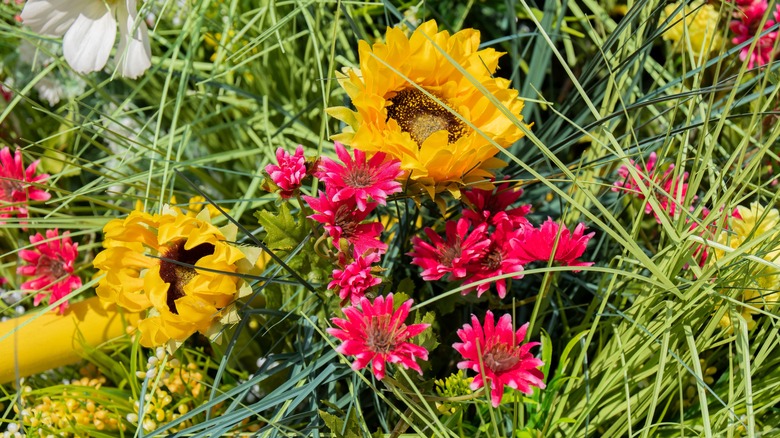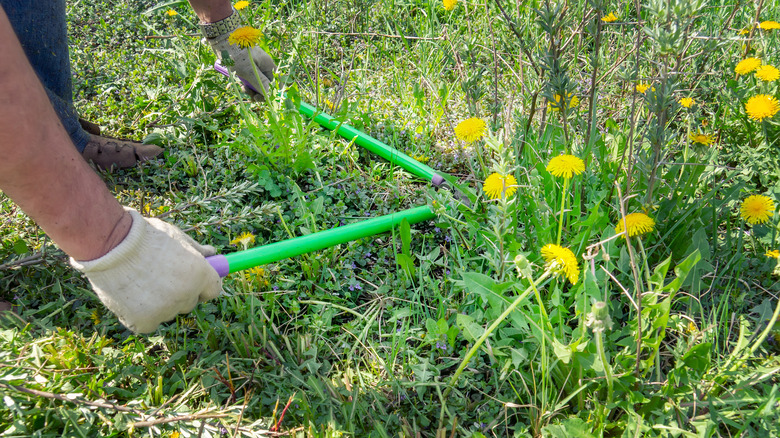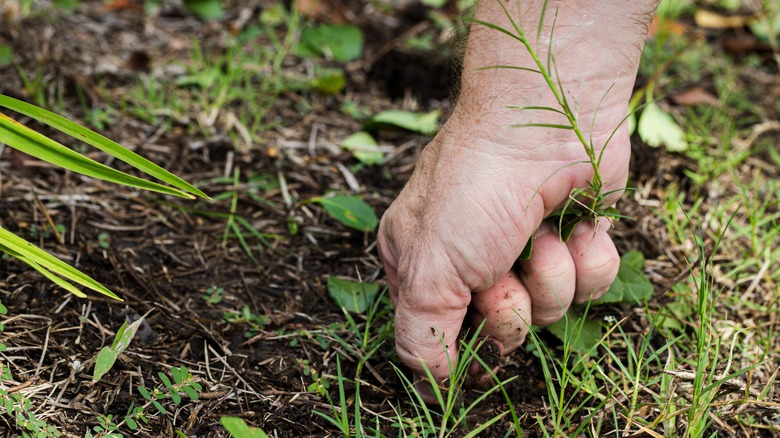Don't Skip This Important Step Before Killing Grass Or Weeds In Flower Beds
Have you been discovering grass or other common garden weeds in your flower bed? If so, you're probably eager to get rid of them. Grass and weeds can ruin the appearance of an otherwise beautiful flower garden and should be removed as soon as possible. If you want your flower bed to keep looking its best, you need to maintain it and stay on top of weed removal. Before you get started, however, do a bit of prep work. Consider doing some pruning in your flower bed before you get started so that you can easily access the base of the grass. This will help you avoid pulling up your plants and make it easier to target the weeds.
It's a great idea to get into the habit of pruning your plants regularly rather than letting things get too out of hand. When pruning, you'll need to remove dead and diseased organic material to ensure that your plants are tidied up as much as possible. Winter is the best time to prune most plants, trees, and shrubs, but you can do it anytime of the year. Generally, flowers that bloom in the beginning of spring on old wood should be pruned soon after they flower. Flowers that bloom at the end of summer or in the fall should usually be pruned during the winter or early spring.
Preventing grass and weed growth in your flower bed
Weed removal is most successful when it is done quickly and thoroughly. Pruning can help you to do this. If you are dealing with annual weeds, pruning the weed back to the ground will reduce the weed's seed production. There are also many steps you can take to prevent the growth of weeds and grass in the garden in the first place. One of the best preventative measures you can take is mulching. Consider mulching your flower beds to prevent grass and weeds from popping up where they don't belong. Alternatively, consider using some other techniques to smother weeds effectively in your flower garden.
Another thing to remember is that you should avoid watering weeds while watering your flowers and plants. If there are weeds present, make sure to target only the plant itself. Otherwise, you may end up encouraging growth. You may want to use drip irrigation to do this or water your flowers by hand. You should also avoid digging and disturbing the soil unless it's absolutely necessary. If you do, weed seeds that are dormant may get closer to the sun and begin to grow more easily.
Getting rid of weeds completely
When removing weeds in your flower bed, it's best to time it right. Get into the habit of removing weeds right after it rains since they can be removed more easily when the soil is moist. It's also a good idea to have your gloves and tools ready and within easy reach, so that you can easily spend time pulling weeds when there's a good moment. If it's hard for you to find the time to remove annual weeds completely, consider deadheading them instead. This will buy you some time and will prevent them from growing and spreading for a few weeks. Some will even die if you continually cut them.
In addition to these manual methods, there are some great home remedies that you can try for removing weeds. You can control your garden's weed problem with dish soap for a simple and safer solution that herbicides. Only if it's absolutely necessary should you consider using herbicides. Herbicides contain glyphosate which can be carcinogenic. It can cause damage to your body so it's best avoided, if possible. Also, remember that you shouldn't apply herbicides just before it rains. If you do, it's likely to wash away and won't be as effective.


